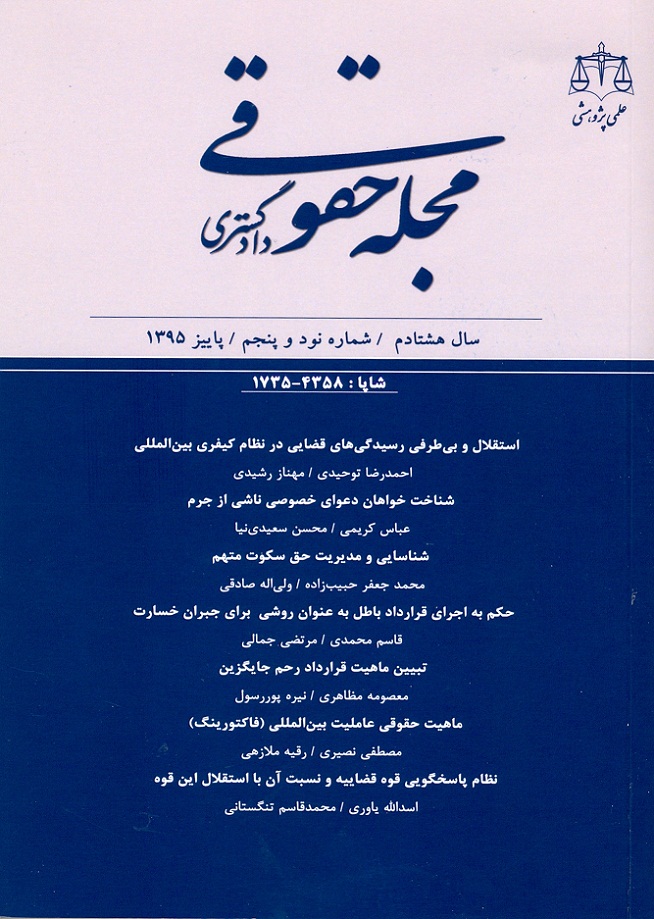Document Type : Research/Original/Regular Article
Authors
Abstract
Independence and impartiality of the proceedings generally used as a principle and largely overlap together. However, this two terms don’t have the same meaning.Independence in international proceedings means lack of subordination to and freedom of influence of courts and proceedings from external pressures and factors, including States, international organizations, powerful persons and etc. This concept in internal system emerges from seperation of powers Montesquieu´s theory and implies that the executive can´t influence on judiciary. But, impartiality measns lack of bias and lack of prejudice in favour of one party of the proceedings and, independence is one of the factors that supply impartiality. This principle in the international criminal courts has always been known as one of the most important principles of justice and theses courts tried, whether in their statutes and their jurisprudence, in order to legitimacy of proceedings and structures, as much as possible ensure implementation of these principles. Studying Procedures of international criminal courts including international tribunal for Rowanda, international criminal tribunal for the former Yugoslavia, special court for Sierra leone and international criminal court gives a good criterion for identifying violations of the independence and impartiality that is the detection of violations in view of “reasonable observer, properly informed” and the gross effect on the accused´s right to a fair trial. Also in proceedings, in general, independence and impartiality are principle and those who claim contrary to it, should provide strong reasons to prove it.
Keywords

